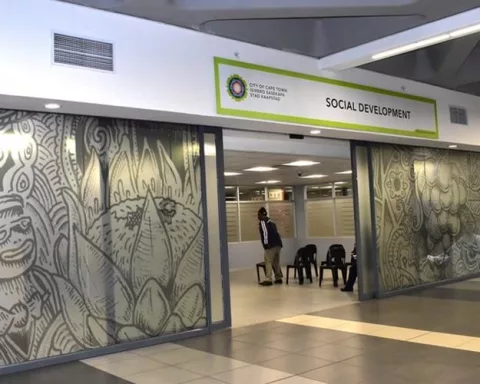In Cape Town, the eviction of the homeless from areas like Culemborg is met with a multifaceted approach aimed at rehabilitation and reintegration. The Safe Spaces program provides shelter and access to services like mental health, substance abuse treatment, and employment opportunities. The city’s commitment to addressing homelessness is reflected in its expansion of transitional shelters, increased bed capacity at Haven Night Shelter, and investment in NGO grants. The approach is a compassionate response to homelessness, offering a path to dignity and self-reliance.
The City’s Response to Homelessness
The city of Cape Town’s approach to homelessness extends beyond eviction, with the Safe Spaces program providing comprehensive support and opportunities for personal growth, employment, and access to medical and mental health services. The city’s initiatives include transitional shelters, substance abuse treatment, and increasing the bed capacity of Haven Night Shelter, reflecting its commitment to addressing homelessness.
As dawn breaks over the vibrant landscape of Cape Town, a story of divergence surfaces. A decree from the Western Cape High Court reverberates across the city, serving as a final eviction notice for unauthorized inhabitants in sections of Culemborg, a historic district cradled in the heart of the city. Specifically, this order targets areas flanking Nelson Mandela Boulevard, Christiaan Barnard Bridge, and more. The ensuing narrative is one of homelessness, eviction, and ultimately, redemption.
The City’s Response to Homelessness
The city’s approach to homelessness is multifaceted, reaching far beyond mere eviction. The admirable Safe Spaces program is a beacon of light for those who took shelter under the bridges and roadside reserves of Culemborg. These government-operated shelters provide more than just protection from the elements. They offer a comprehensive path towards reintegration, brimming with opportunities for personal growth, employment, and access to mental health services, medical care, and substance abuse treatment.
The tale of eviction extends to Victoria Road and Kloof Road in Camps Bay, where a similar scenario has arisen. Here too, the High Court’s eviction order resonates. But, as in Culemborg, the city’s reaction extends beyond eviction. It is a guiding hand, leading the occupants towards a brighter future.
Evictions and Alternatives
Amidst the backdrop of the evictions, the city’s approach offers a compassionate alternative. Safe Spaces have arisen as havens, providing emergency housing kits and relocation support. These interventions strive to create a pathway towards sustainable living, dignified and self-reliant.
The city’s initiatives to rehabilitate the homeless are not confined to the direct eviction sites. The forthcoming court decisions on final eviction orders for homeless encampment sites sprinkled throughout the bustling CBD, including Buitengracht Street and Helen Suzman Boulevard, highlight the city’s initiatives’ significance.
Mayor Geordin Hill-Lewis encapsulates the city’s strategy in his statements. He emphasizes the city’s efforts to extend every possible assistance to those unlawfully occupying public spaces. It is an appeal, an invitation for the homeless population to take advantage of these social support programs for their dignity, health, and well-being.
Expansion and Investment in Safe Spaces
The city’s pledge to confront homelessness progresses with the expansion of Safe Space transitional shelters. A substantial investment of R230 million over three years aims to extend the reach of the Safe Spaces. The growing facilities in Culemborg, along with a new 300-bed Safe Space in Green Point, illustrate the city’s dedication.
Additional initiatives, like increasing the bed capacity of Haven Night Shelter by 63% and deploying 184 EPWP workers to aid NPOs, manifest the city’s steadfast commitment to addressing homelessness. It is an investment in humanity, bolstered by a generous social development budget that, over three years, will allocate R75m through grant-in-aid funding to NGOs.
Substance Abuse Treatment and Comprehensive Services
Through the Matrix substance abuse treatment program, boasting an impressive 80% success rate, the city tackles a significant contributor to homelessness. Over the year ending June 2023, the city has assisted nearly 3,500 individuals with a range of services, including shelter placements, family reunifications, social service referrals, and job opportunities.
The Safe Space model, with its plethora of facets – comfort and ablution facilities, two meals per day, access to an on-site social worker, skills training, job assistance, and more – epitomizes the city’s holistic approach. It is a compassionate response to the intricate issue of homelessness, a commitment to restore dignity and a sense of belonging to those adrift. It narrates a story of redemption, nurtured amidst eviction.
What is the Safe Spaces program in Cape Town?
The Safe Spaces program in Cape Town is a government-operated shelter program that provides emergency housing kits and relocation support to homeless individuals. It offers comprehensive support, including access to mental health services, medical care, substance abuse treatment, and employment opportunities.
What is the city of Cape Town’s approach to homelessness?
The city of Cape Town’s approach to homelessness extends beyond eviction and includes comprehensive support for individuals experiencing homelessness. This includes transitional shelters, substance abuse treatment, and increasing the bed capacity of Haven Night Shelter.
What is the city of Cape Town’s investment in addressing homelessness?
The city of Cape Town has invested R230 million over three years towards the expansion of Safe Spaces transitional shelters, increasing the bed capacity of Haven Night Shelter by 63%, and deploying 184 EPWP workers to aid NPOs. The city has also allocated R75m through grant-in-aid funding to NGOs over three years.
What is the Matrix substance abuse treatment program?
The Matrix substance abuse treatment program is a program offered by the city of Cape Town that boasts an 80% success rate. It assists individuals with shelter placements, family reunifications, social service referrals, and job opportunities.
What is the city of Cape Town’s response to evictions of homeless individuals?
The city of Cape Town’s response to evictions of homeless individuals includes a compassionate approach towards reintegration and rehabilitation. This includes the Safe Spaces program, which offers comprehensive support and opportunities for personal growth, employment, and access to medical and mental health services.
What is the city of Cape Town’s commitment to addressing homelessness?
The city of Cape Town is committed to addressing homelessness through its expansion of transitional shelters, investment in NGO grants, and increased bed capacity at Haven Night Shelter. The city’s holistic approach aims to restore dignity and self-reliance to individuals experiencing homelessness.












